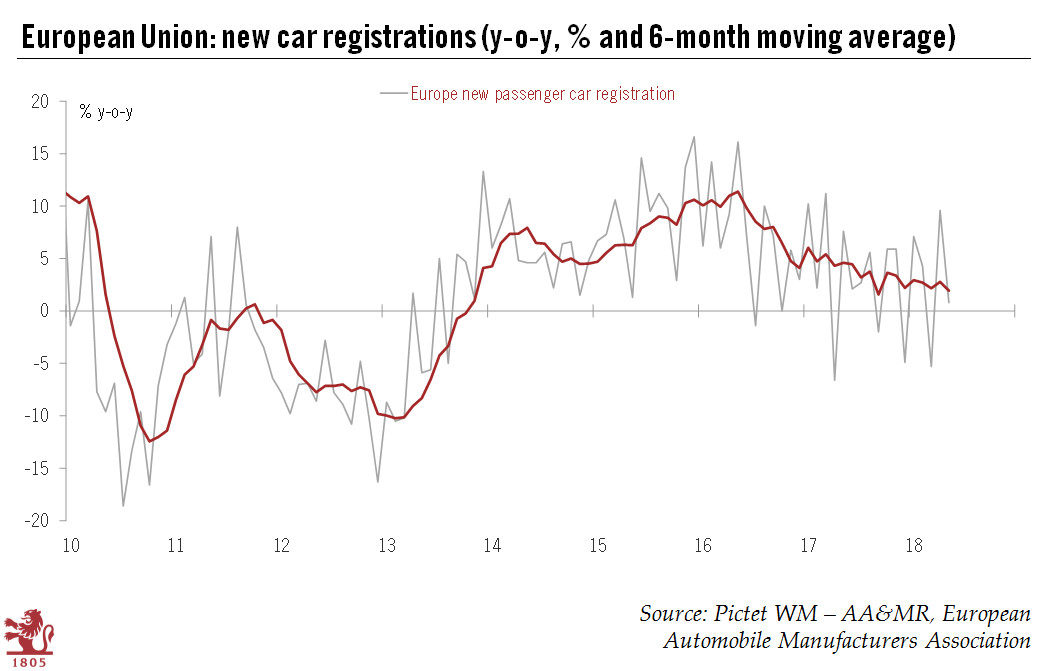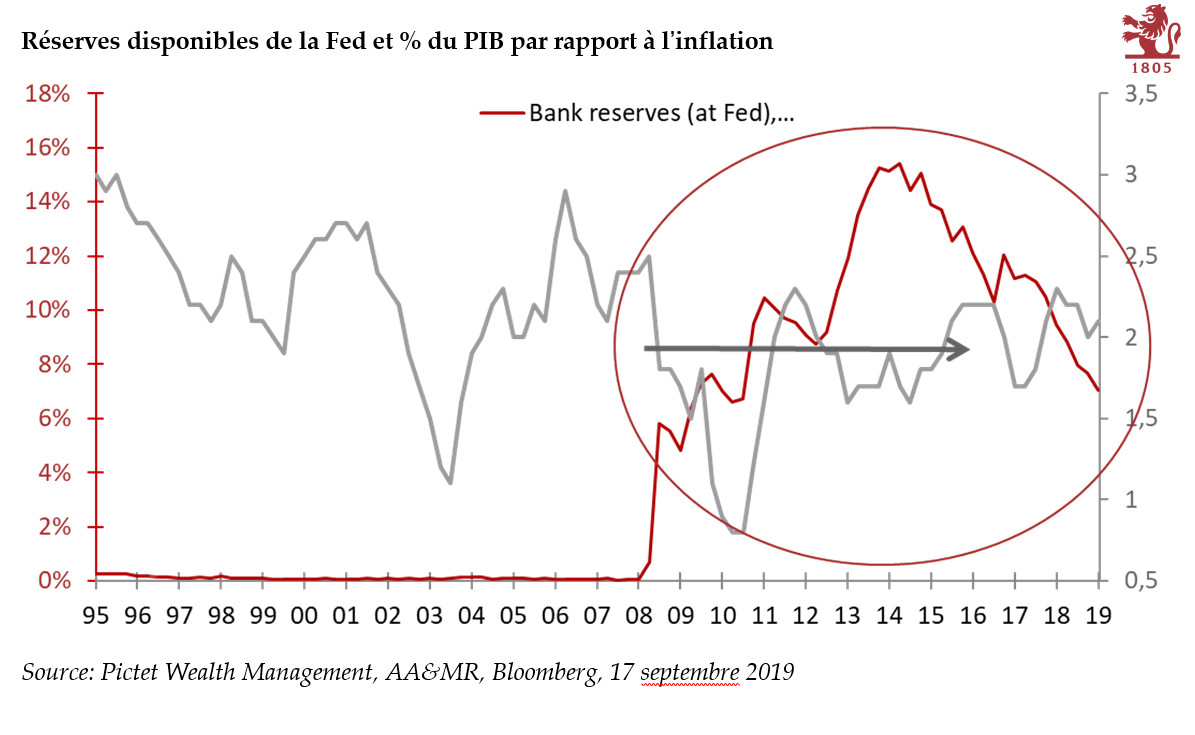Falling momentum in new car sales, together with the threat of US tariffs is adding to the uncertainty facing the European car industry.
-
The motor vehicle industry is of major importance to the EU economy and to global trade.
-
According to Eurostat, total exports (to countries outside the EU) amounted to EUR205bn in 2017. Germany accounted for 52% of total motor exports. The US was the largest destination for EU motor vehicle exports (24% of the total in 2017).
-
Mr Trump’s hint that the White House could impose import tariffs on cars and car parts would strike at the heart of Europe’s manufacturing industry, in particular German firms.
-
It is quite difficult to isolate the effect of a potential one-off increase in US tariffs given the complexity of the global auto supply chain. However, uncertainty is set to remain high and could impact investment, adding to the existing downside risks to the growth forecasts for Europe.
| Last weekend’s G7 summit in Canada ended badly, with President Trump withdrawing his support for the summit’s final statement. Heightening tensions between Europe and the US are Trump’s hints that the White House is considering import tariffs on cars and car parts.
German firms would be the most impacted if such tariffs were introduced. According to Eurostat, Germany accounts for 52% (or EUR107bn) of the EU’s car total exports, many of which go to the US (EUR28bn). This is adding to uncertainty for an industry already grappling with the implications of Brexit for sales to the UK and the car emissions scandal. Given the complexity of the global auto supply chain, it is very complicated to isolate the effect of a one-off increase in US tariffs on European cars. German companies control several US companies and could avoid tariffs by shifting production to US plants. Even though US tariffs on car imports could be watered down (or not introduced at all) uncertainty is expected to remain high in the European car industry, impacting confidence. This could mean manufacturers postpone investment and employment decisions. Data on the auto sector will be key to watch in the coming months to assess the mood of European manufacturers and the potential impact on growth. Already, like much other hard data, car registrations have come in on the weak side this year (see Chart), although the drop in growth in new car registrations in the European Union in May could be partially blamed on calendar effects. |
European Union: New car registrations 2010-2018 |
Full story here Are you the author? Previous post See more for Next post
Tags: European manufacturing,Macroview,newslettersent






































